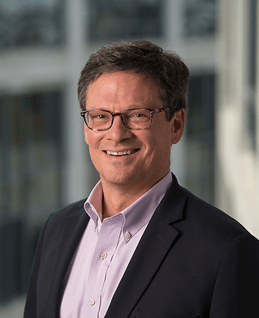Laurel Springs President, Peter Robertson: Online Schooling is Different than Online Learning
3/25/20
The COVID-19 pandemic has created uncertainty and uneasiness over the last few weeks, as well as a major shift in thinking for families who find their schools being shut down indefinitely. Many parents, students, and educators have been forced to move from functioning in a physical classroom to an online classroom practically overnight.
Laurel Springs School's President, Peter Robertson, shares insight on educators and families rallying to make it all work. How is schooling at home different from homeschooling? How does the pandemic affect the world's long term view of education? Can schooling at home really prepare children to reach their personal goals?
This is what Peter has to say.
Everyone is scrambling. Last I heard, one-fourth of Americans are being ordered to stay home, and almost a billion students around the globe have had their schools closed. Teachers are taking their lessons online with whatever training and support they can assemble. (Laurel Springs School teachers compiled a set of suggested Best Practices for Teaching Online). But online schooling isn’t the same as online learning, and many of us who believe in online learning are worried that misconceptions will build, and the world of digitized worksheets will be mistakenly confused for online classrooms.
The greatest potential of online learning is putting a student’s personal learning journey first and supporting it with best-in-class curriculum and instructional support, as well as providing schedule flexibility. Students successful with this approach can pursue their passions, and they also develop noteworthy independence, ownership, and self-advocacy.
Some families try homeschooling for the same reasons, and a lot of offline and online resources have helped those efforts. But some then find those resources—and their own capabilities—are not enough. They might find their children need expert teachers in some or many areas, especially in upper grades. Or they might discover the "parent-as-teacher" dynamic doesn’t work for every child in every subject.
Many homeschoolers want to make sure they are offering their children every opportunity available to them. They value the flexibility their children—and the whole family—can use to work together, play together, and otherwise share their lives. But they also know that their children are going somewhere else someday. They want to be sure their academic experience is rigorous enough to help their children fulfill their potential, and that it provides them a clear path to a bright future—especially if that future is a “mainstream” one, with college admissions officers and job interviewers trying to interpret their past and its implication for their future.
As the current crisis rolls on, the daily scramble to figure things out will give way to thinking about the long term. There are certainly families rethinking education and learning, and organizations of all kinds rethinking how they might support those families. Laurel Springs School, with its reputation, flexibility, and rigor is committed to providing families and organizations a new approach to education, while also ensuring that students will benefit immediately and maintain a clear path to a "mainstream" future.
Share on social media
